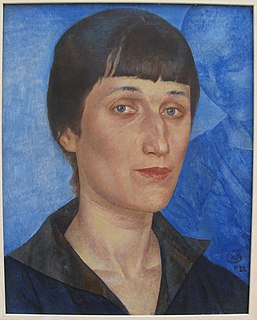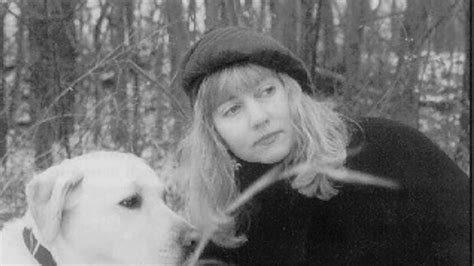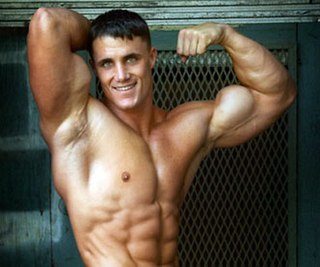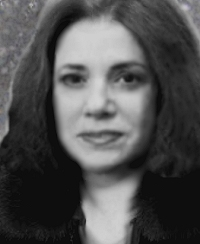A Quote by Ted Hughes
The inmost spirit of poetry, in other words, is at bottom, in every recorded case, the voice of pain – and the physical body, so to speak, of poetry, is the treatment by which the poet tries to reconcile that pain with the world.
Related Quotes
Poetry has its uses for despair. It can carve a shape in which a pain can seem to be; it can give one’s loss a form and dimension so that it might be loss and not simply a hopeless haunting. It can do these things for one person, or it can do them for an entire culture. But poetry is for psychological, spiritual, or emotional pain. For physical pain it is, like everything but drugs, useless.
A lot of people think they can write poetry, and many do, because they can figure out how to line up the words or make certain sounds rhyme or just imitate the other poets they've read. But this boy, he's the real poet, because when he tries to put on paper what he's seen with his heart, he will believe deep down that there are no good words for it, no words can do it, and at that moment he will have begun to write poetry.
What the world wants, what the world is waiting for, is not Modern Poetry or Classical Poetry or Neo-Classical Poetry - but Good Poetry. And the dreadful disreputable doubt, which stirs in my own skeptical mind, is doubt about whether it would really matter much what style a poet chose to write in, in any period, as long as he wrote Good poetry.
The spirit, if it could be seen with mortal eyes, would appear in bodily shape like a full-grown person with individual endowments that make it a counter-part of the body in which it [resides,] "that which is temporal in the likeness of that which is spiritual." (D&C 77:2.) It was that which came from God and entered at birth into the infant body prepared by its mortal parents. The spirit was of the "Lord from heaven." The physical body was "of the earth, earthy," (2 Cor. 15:47) or in other words, composed of the elements of which the things in the physical world are composed.
Once considered an art form that called for talent, or at least a craft that called for practice, a poem now needs only sincerity. Everyone, we're assured, is a poet. Writing poetry is good for us. It expresses our inmost feelings, which is wholesome. Reading other people's poems is pointless since those aren't our own inmost feelings.
It is worthwhile adding that the power of the poem to teach not only sensibilities and the subtle movements of the spirit but knowledge, real lasting felt knowledge, is going mostly unnoticed among our scholars. The body of knowledge locked into and releasable from poetry can replace practically any university in the Republic. First things first, then: the primal importance of a poem is what it can add to the individual mind.Poetry is the voice of a poet at its birth, and the voice of a people in its ultimate fulfillment as a successful and useful work of art.
The nerves of the skin send pain signals to the brain to warn us of the danger from and impending injury. In the case of self-inflicted wounding, this pain acts as the body's own defense mechanism to stop one from proceeding in the effort at physical injury. If a person proceeds despite the pain, that means that he or she is motivated by something stronger than the pain, something that makes him or her capable of ignoring or enduring it.
Grief does not end and love does not die and nothing fills its graven place. With grace, pain is transmuted into the gold of wisdom and compassion and the lesser coin of muted sadness and resignation; but something leaden of it remains, to become the kernel arond which more pain accretes (a black pearl): one pain becomes every other pain ... unless one strips away, one by one, the layers of pain to get to the heart of the pain - and this causes more pain, pain so intense as to feel like evisceration.







































